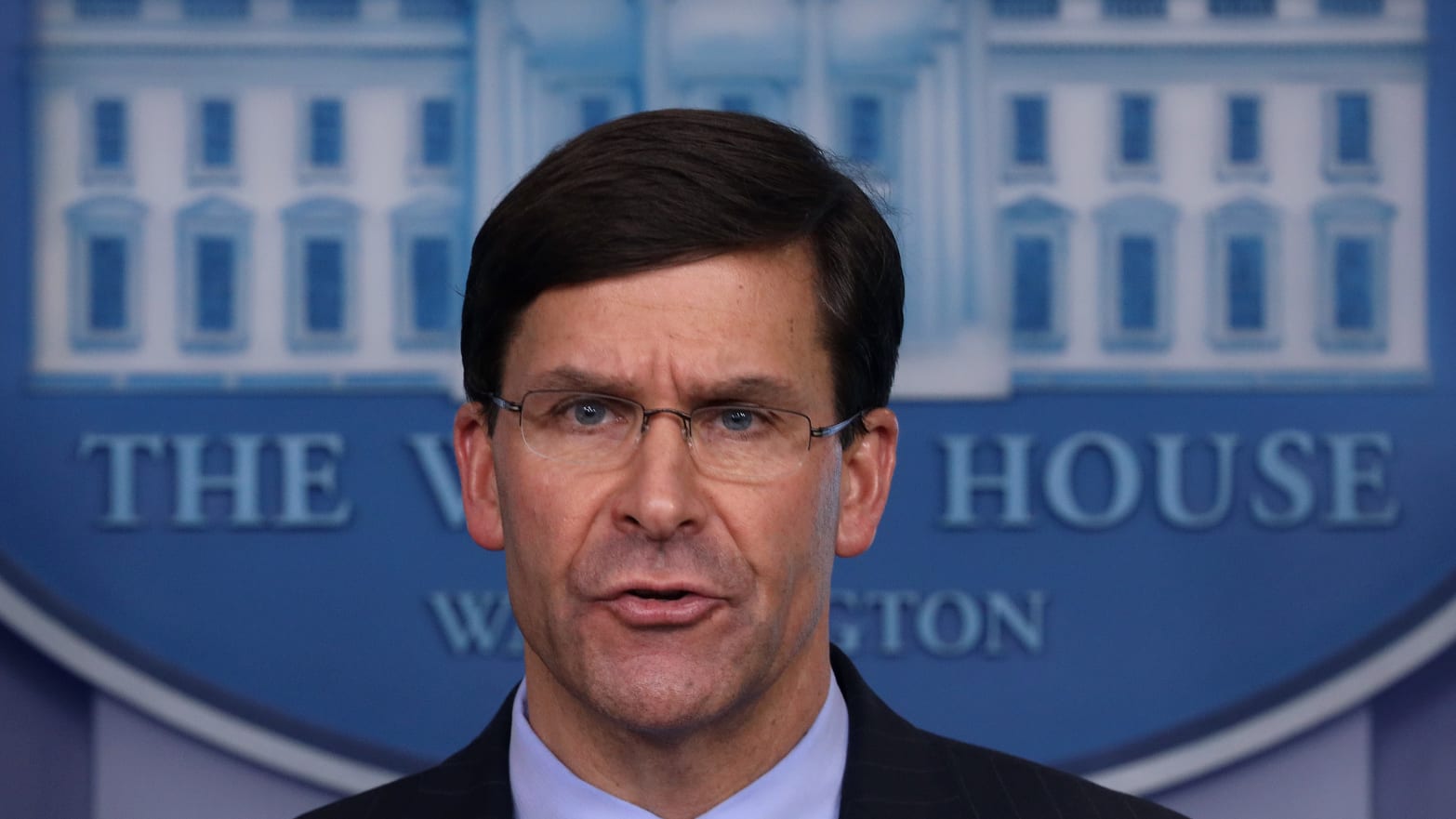Under intense criticism for seeming to give President Donald Trump’s violent response to institutional police racism the imprimatur of the military, Defense Secretary Mark Esper said he opposes using the active-duty military—even as an infantry battalion arrived outside Washington, D.C.
The use of active-duty forces needs to be a “last resort,” Esper told reporters Wednesday morning. “I do not support invoking the Insurrection Act.”
Trump threatened to use the 1807 act on Monday night in remarks that followed park police using tear gas and rubber bullets—supported by National Guard forces that did not open fire—on peaceful protesters in Lafayette Square outside the White House. Clearing the square allowed Trump to pose for a photo in front of St. John’s Church, where he waved around a Bible. He was accompanied by Esper and, in his combat uniform, Gen. Mark Milley, the chairman of the Joint Chiefs of Staff.
Esper, on Wednesday, began his remarks by urging U.S. service members to remain “apolitical.” Yet the secretary’s role in Monday’s events has been blasted as a violation of his oath to the Constitution. On Tuesday night, a member of the Defense Policy Board, former undersecretary of defense for policy Jim Miller, resigned in protest.
“You may not have been able to stop President Trump from directing this appalling use of force, but you could have chosen to oppose it. Instead, you visibly supported it,” Miller wrote in his resignation letter.
Since the St. John’s Church incident, the Pentagon has portrayed Esper and Milley as not fully aware of what was happening. On Wednesday, Esper revised an earlier explanation by saying, “I did know we were going to the church.” He insisted he also “was not aware of law enforcement’s plans for the park.”
Pentagon officials said on Tuesday that Esper and Milley had arrived at the White House from an FBI-hosted Justice Department command center, but on Wednesday he said he “had not arrived” there before getting notified to return to the White House. Shortly after, Esper said, Trump gave his remarks and began the walk to St. John’s Church.
Esper said he tries to operate in an apolitical manner. “Sometimes I’m successful, sometimes I’m not,” he said Wednesday.
The Pentagon chief also climbed down from one of his most infamous utterances in the days since the protests against police racism began across the country. While not apologizing for calling American cities “battlespace” that the military ought to “dominate,” Esper said “in retrospect, I would use different wording.” The secretary said he was accustomed to using military terminology, and others were misinterpreting his remarks.
Esper called the police execution of George Floyd “a great crime” and said Americans must confront racism. Despite his stated opposition to invoking the Insurrection Act against the protesters, the Pentagon announced Tuesday night that an infantry battalion dubbed Task Force 504 is outside Washington, D.C., on short alert, though not yet in operation. Along with military police and engineers, the active-duty contingent outside the capitol totals 1,600 troops.

